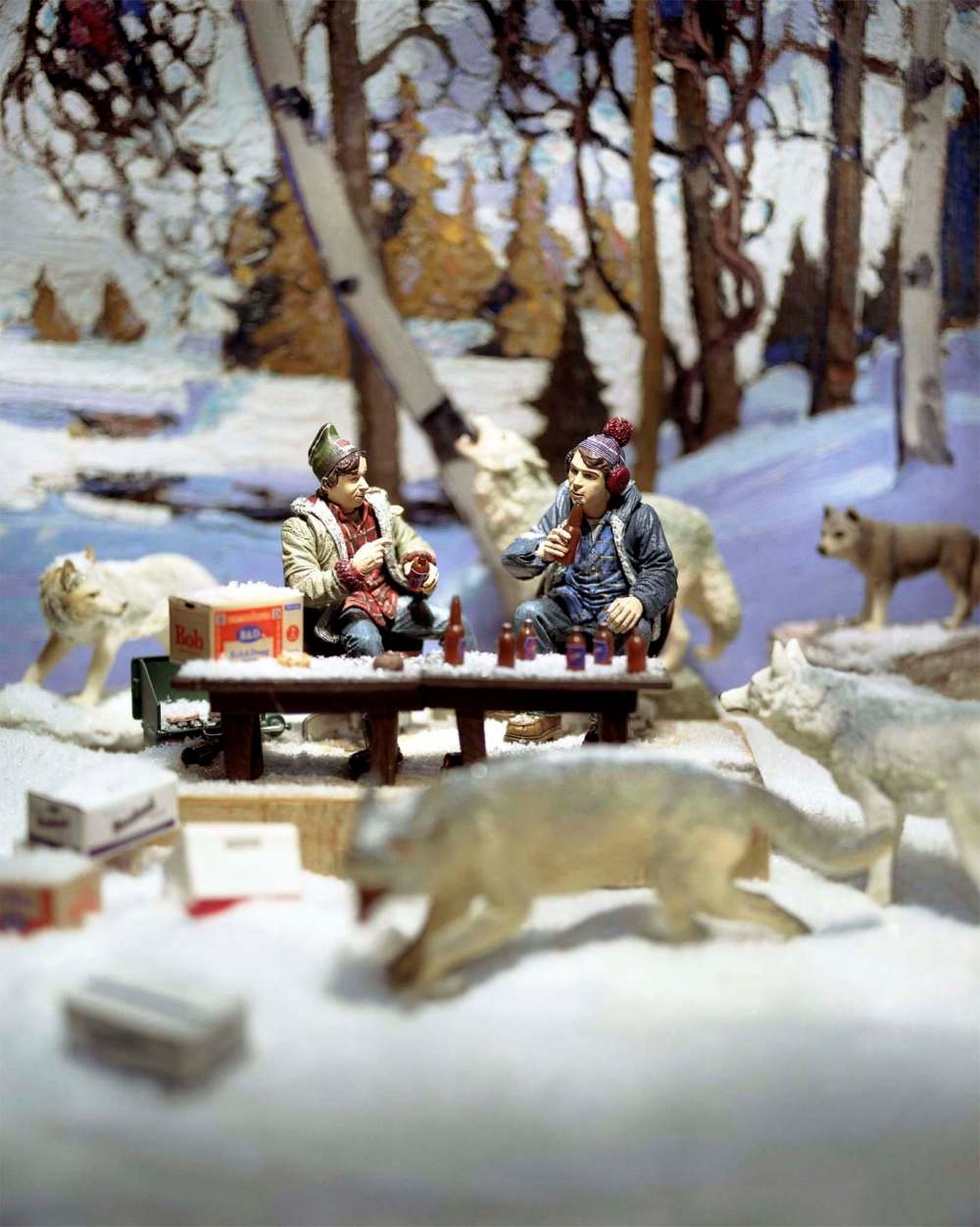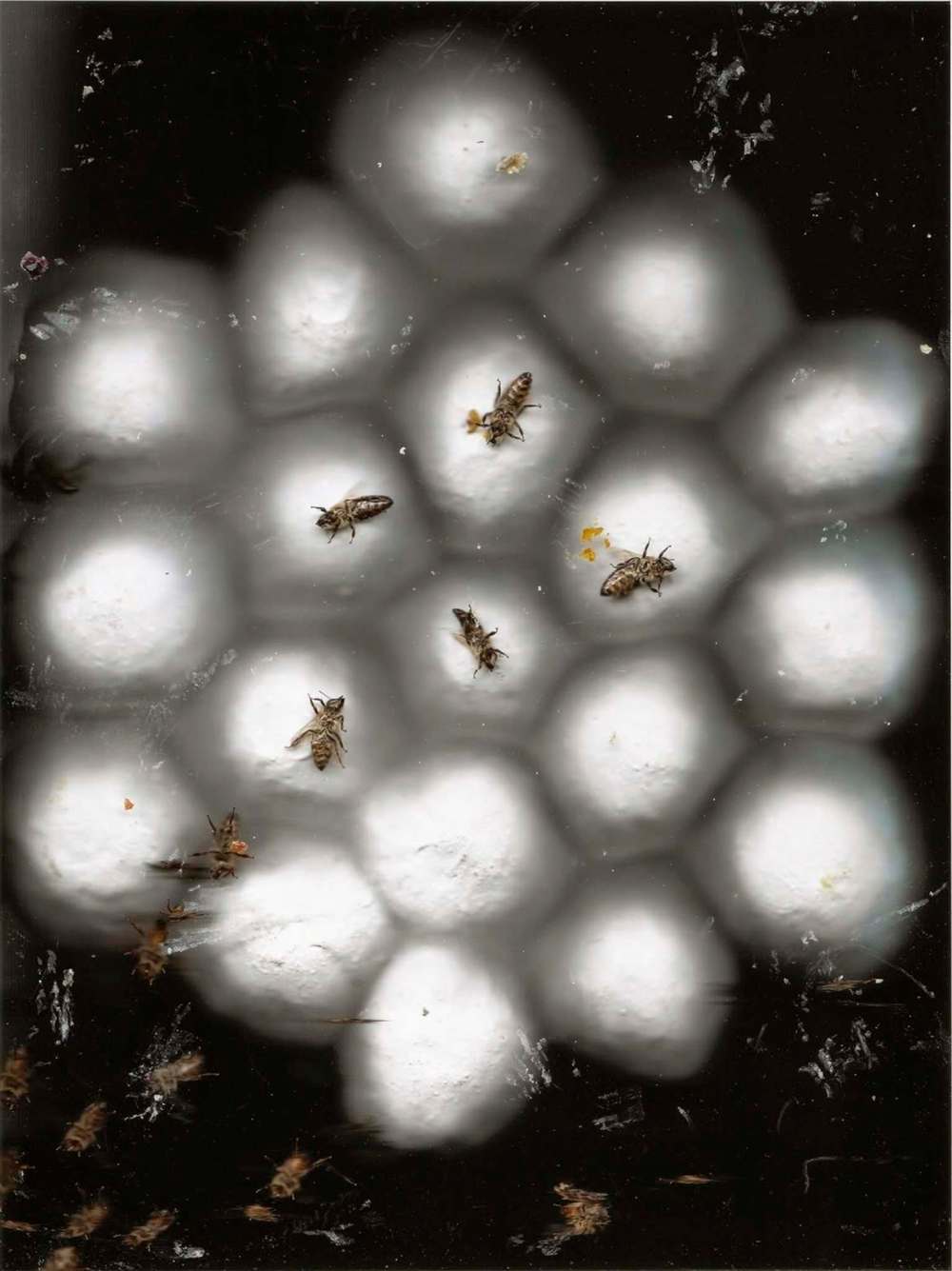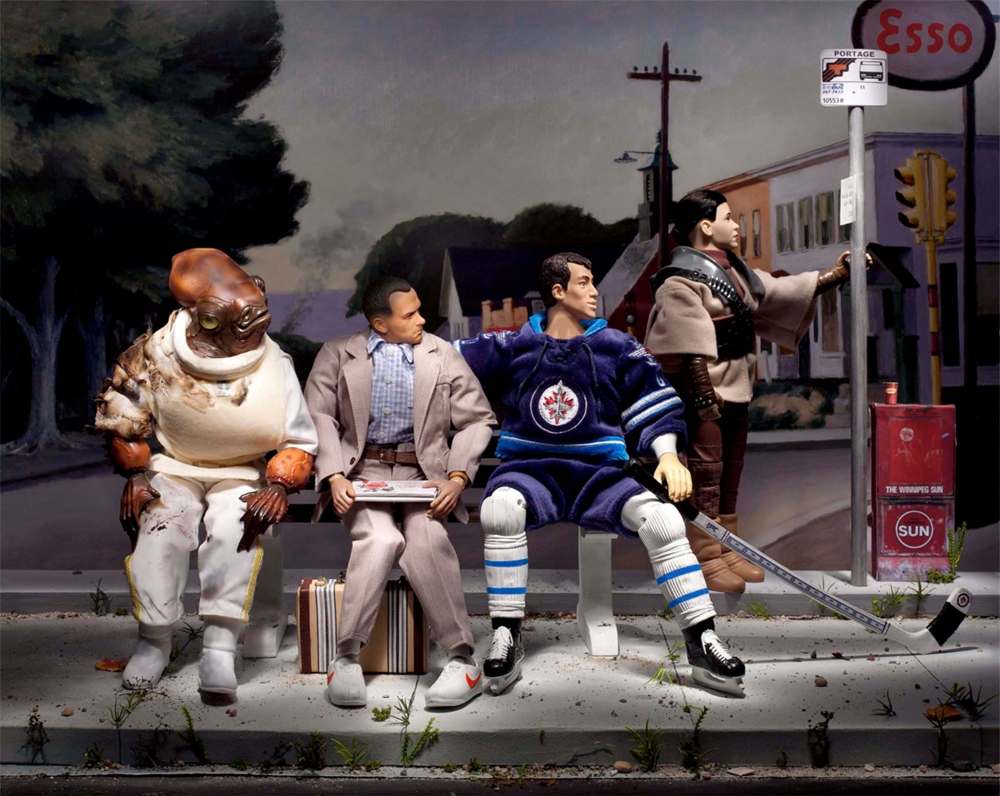Esteemed local artists and studio-mates ‘transform the ordinary’ in two-person show
Advertisement
Read this article for free:
or
Already have an account? Log in here »
To continue reading, please subscribe:
Monthly Digital Subscription
$1 per week for 24 weeks*
- Enjoy unlimited reading on winnipegfreepress.com
- Read the E-Edition, our digital replica newspaper
- Access News Break, our award-winning app
- Play interactive puzzles
*Billed as $4.00 plus GST every four weeks. After 24 weeks, price increases to the regular rate of $19.00 plus GST every four weeks. Offer available to new and qualified returning subscribers only. Cancel any time.
Monthly Digital Subscription
$4.75/week*
- Enjoy unlimited reading on winnipegfreepress.com
- Read the E-Edition, our digital replica newspaper
- Access News Break, our award-winning app
- Play interactive puzzles
*Billed as $19 plus GST every four weeks. Cancel any time.
To continue reading, please subscribe:
Add Free Press access to your Brandon Sun subscription for only an additional
$1 for the first 4 weeks*
*Your next subscription payment will increase by $1.00 and you will be charged $16.99 plus GST for four weeks. After four weeks, your payment will increase to $23.99 plus GST every four weeks.
Read unlimited articles for free today:
or
Already have an account? Log in here »
Hey there, time traveller!
This article was published 07/04/2016 (3472 days ago), so information in it may no longer be current.
Diana Thorneycroft and Aganetha Dyck have worked in neighbouring studios for decades, but their first show alongside third studio-mate Reva Stone was just last September. Bees, Beasts & Binaries at Gurevich Fine Art saw the esteemed Winnipeg artists deconstruct and reassemble facets of contemporary life in divergent but surprisingly compatible ways.
Altered States: The Ordinary Transformed, which opened at St. Boniface General Hospital’s Buhler Gallery in February, reunites Dyck and Thorneycroft for a second, more in-depth conversation.
A comprehensive introduction to both artists’ work, the show presents a 15-year survey of Thorneycroft’s darkly funny diorama photographs, which gently and less-gently skewer national identity.

Dyck, meanwhile, presents a sampling of her internationally acclaimed “collaborations” with honeybees, including honeycomb-covered found objects and digital prints, as well as early and more recent works in felted wool.
In Thorneycroft’s best-known series, Group of Seven Awkward Moments, a roguish cast of dolls and action figures suck the gravitas out of iconic Canadian landscape paintings, highlighting the weird ways “wilderness” has informed national identity.
We stumble on an illicit tryst in a tent pitched under Tom Thomson’s Jack Pine. A Christmas tree stand rises from the charred stumps of Franz Johnston’s Fire-swept, Algoma. Bears raid the garbage at a cabin on Franklin Carmichael’s Mirror Lake, while action-figure Bob and Doug McKenzie seem oblivious to the plastic wolves encircling their camp.
Canadians and Americans (best friends forever… it’s complicated) offers daffy cross-border pop culture mashups in a similar vein, while A People’s History confronts darker themes.
In one photo, we glimpse a conversation through miniature farmhouse windows, then notice the toy front-end loader parked out back. The landscape is serene, but the atmosphere feels disturbed; I was on the bus heading home before I recognized the scene as Robert Pickton’s Port Coquitlam pig farm.
Athletes feature in many of Thorneycroft’s images, extending a link to Dyck’s Sports Night in Canada series from the mid-’90s.
Dyck, who kept bees for many years, would leave damaged second-hand objects (shoes, wire hangers, figurines, etc.) inside her hives to be “mended” and eventually overrun with honeycomb. Here the bees do their work on three battered football helmets, filling the interiors and covering the openings with sheets and stalactites of amber-coloured wax, adding “padding” but rendering the helmets useless.

Elsewhere, large-scale photos of active bee colonies made with a flatbed scanner restore a sense of buzzing, jittery activity absent from the empty combs.
The oldest works are Dyck’s series of dramatically shrunken wool garments from 1976-81. The felted fabric bunches up until miniaturized sweaters and skirt suits become oddly relatable, freestanding figures.
These are joined by more fanciful and abstract crocheted Shrinks from 2012, made after allergies forced Dyck to permanently give up beekeeping.
A place of respite in the hospital, Buhler Gallery has an odd ambience, both domestic and institutional, equal parts living room, waiting room and gallery. It’s a space for lingering, letting connections between the wide-ranging works emerge gradually.
Dyck and Thorneycroft certainly both “transform the ordinary” in Altered States, but they also touch on related themes of protection and resourcefulness.
Even when the mood turns dark, play is at the heart of Thorneycroft’s practice. Like her images and the lurid dreamscapes they evoke, play creates safe (if potentially subversive) space to test boundaries, rewrite familiar narratives and try on new identities.
Helmets, clothes and honeycombs all insulate and protect the vulnerable things inside them, and Dyck’s collaborations speak to a uniquely empathetic perspective that seems only more vital as the ecosystems we share become more precarious.

In their current setting, both artists show that art can be critical, abstract, funny and strange, all while serving as a well of comfort, strength or just necessary distraction.
Steven Leyden Cochrane is a Winnipeg-based artist, writer and educator.

